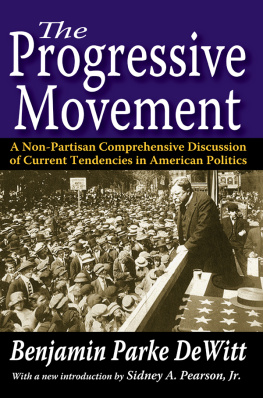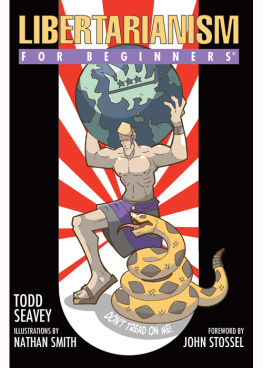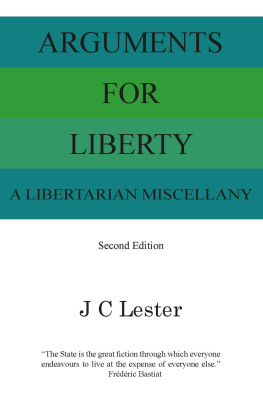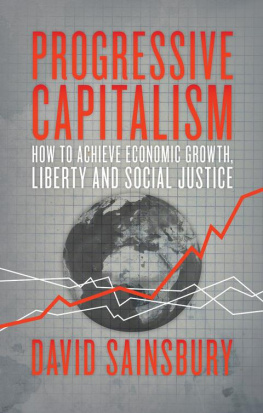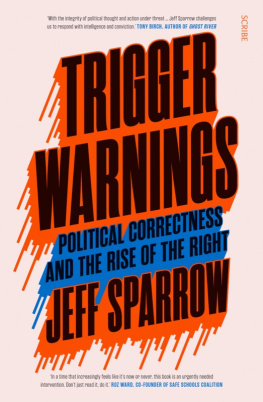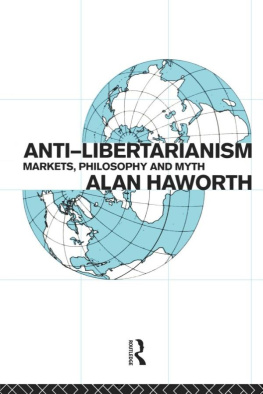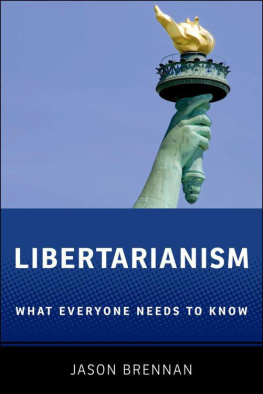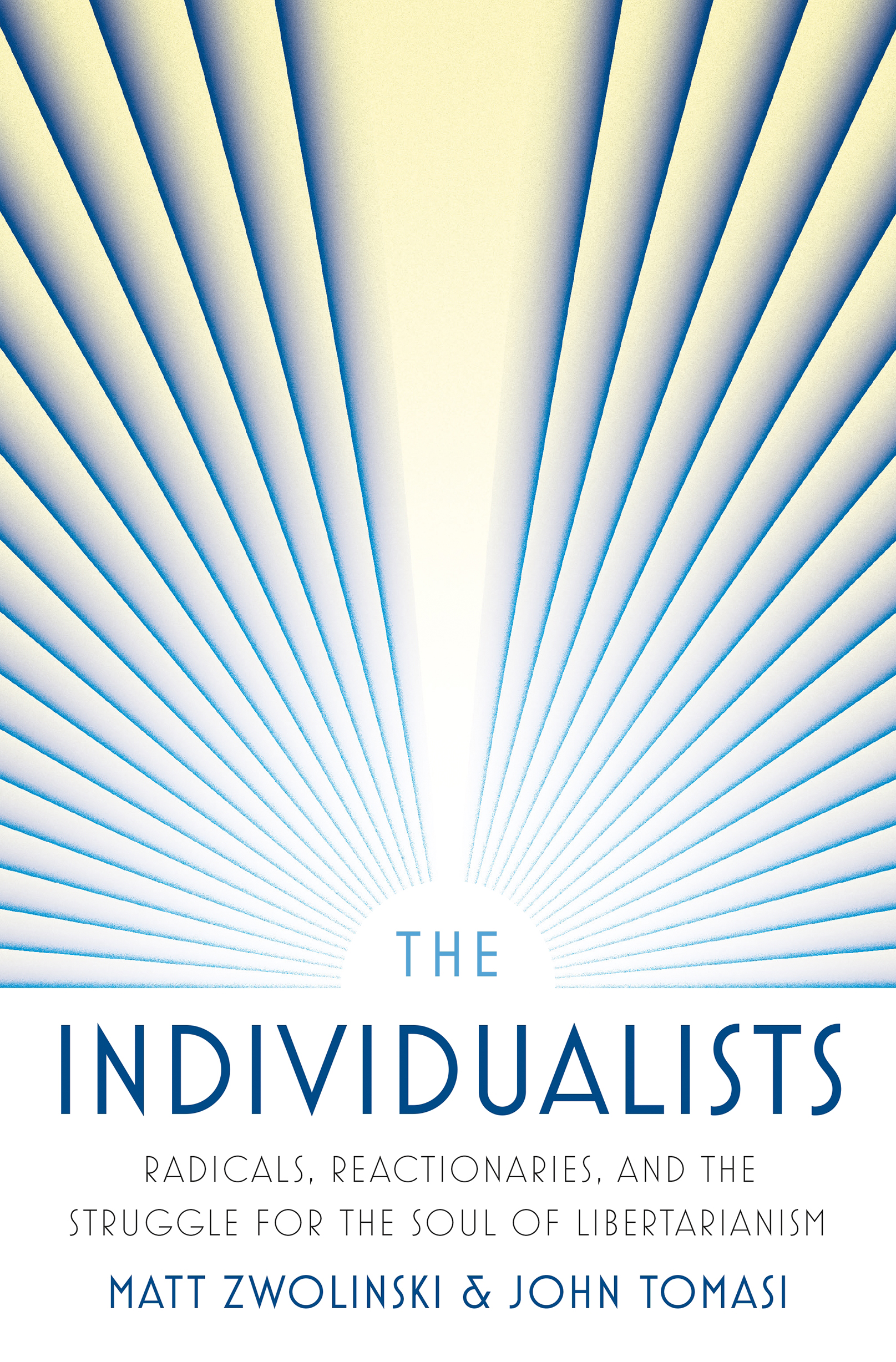THE INDIVIDUALISTS
The Individualists
RADICALS, REACTIONARIES, AND THE STRUGGLE FOR THE SOUL OF LIBERTARIANISM

Matt Zwolinski and John Tomasi
PRINCETON UNIVERSITY PRESS
PRINCETON & OXFORD
Copyright 2023 by Princeton University Press
Princeton University Press is committed to the protection of copyright and the intellectual property our authors entrust to us. Copyright promotes the progress and integrity of knowledge. Thank you for supporting free speech and the global exchange of ideas by purchasing an authorized edition of this book. If you wish to reproduce or distribute any part of it in any form, please obtain permission.
Requests for permission to reproduce material from this work should be sent to
Published by Princeton University Press
41 William Street, Princeton, New Jersey 08540
99 Banbury Road, Oxford OX2 6JX
press.princeton.edu
All Rights Reserved
Library of Congress Cataloging-in-Publication Data
Names: Zwolinski, Matt, author. | Tomasi, John, author.
Title: The individualists : radicals, reactionaries, and the struggle for the soul of libertarianism / Matt Zwolinski and John Tomasi.
Description: Princeton, New Jersey ; Oxford : Princeton University Press, [2023] | Includes bibliographical references and index.
Identifiers: LCCN 2022020457 (print) | LCCN 2022020458 (ebook) | ISBN 9780691155548 (Hardback) | ISBN 9780691241043 (eBook)
Subjects: LCSH: Libertarianism. | BISAC: POLITICAL SCIENCE / Political Ideologies / Libertarianism | PHILOSOPHY / Political
Classification: LCC JC585 .Z88 2023 (print) | LCC JC585 (ebook) | DDC 320.51/2dc23/eng/20221007
LC record available at https://lccn.loc.gov/2022020457
LC ebook record available at https://lccn.loc.gov/2022020458
Version 1.0
British Library Cataloging-in-Publication Data is available
Editorial: Rob Tempio and Chloe Coy
Production Editorial: Theresa Liu
Jacket/Cover Design: Karl Spurzem
Production: Erin Suydam
Publicity: James Schneider and Carmen Jimenez
Matt Zwolinski
With gratitude to Jen,
Xander, Jack, Zoe, Alexa,
Wilson, Oso, and Tessa,
for a home overflowing with love
John Tomasi
For Amy, Peter, and Lydia
CONTENTS
- ix
ACKNOWLEDGMENTS
THIS BOOK has been long in gestation, and we have accumulated many debts. We presented early versions of this manuscript at workshops at the Center for the Philosophy of Freedom at the University of Arizona and the Political Theory Project at Brown University, as well as a memorable gathering of bleeding heart libertarians in La Jolla, California.
For hosting or participating in these workshops, or for otherwise helping us with this book, we are grateful to David Schmidtz, George Smith, Ross Levatter, Kevin Vallier, Mark LeBar, Charles Johnson, Roderick Long, Dan Russell, Danny Shahar, Sameer Bajaj, Taylor Davidson, Chris Nelson, Guido Pincione, Jacob Barrett, Fabian Wendt, John Thrasher, Greg Robson, Brian Kogelmann, Steve Wall, Don Fallis, Kathy Mathiesen, Carmel Pavel, Chad Van Schoelandt, Tristan Rogers, Matt Mortellaro, Steve Haessler, Brian Doherty, Jason Brennan, Karl Widerquist, Gary Chartier, Virginia Postrel, Mathias Risse, Lynne Kiesling, David Hart, Steve Horwitz, Alexandre Padilla, Steve Davies, Wendy McElroy, David Hart, Roderick Long, David Levy, Tom Palmer, Nick Geiser, Tom Mulligan, Dan DAmico, Jeremy Shearmur, Bas van der Vossen, Daniel Layman, and Samuel Fleischacker. Anthony Gregory provided many valuable suggestions on a late version of the manuscript. Many undergraduates at Brown University helped with these ideas. We are grateful to research assistance from Hank Hultman, Ryan Frant, and especially Henry Bartis. For stylistic suggestions throughout the entire manuscript, we thank Jason Swadley. Whatever poorly written sentences remain in the manuscript are entirely our own.
Jacob Levy and Andy Koppleman provided thoughtful and generous readers reports for Princeton University Press. At a key moment, our editor Rob Tempio told us that ours was not the slowest book project hed ever worked on. We thank Rob for proposing this project, for standing by it, and for giving it time to grow into a more ambitious book than he or we had originally foreseen.
We wrote this book together, not merely as coauthors but as thought-partners. Still, for reasons that may be obvious, we wish to encourage the occasional practice of coauthors listing names in reverse alphabetical order. Thus, we choose to list our names in this order: Zwolinski and Tomasi.
THE INDIVIDUALISTS
Introduction
THIS BOOK is a history of libertarian thought. But what is libertarianism? It depends on whom you ask.
If you were to ask an academic philosopher to list some well-known libertarians, they would probably begin (and possibly end) with Robert Nozick. Nozick published Anarchy, State, and Utopia in 1974, and that book has represented libertarianism in undergraduate philosophy courses ever since.
If you were to ask an economist, the answer might be Milton Friedman. Winner of the Nobel Prize in Economics in 1976, Friedman wrote libertarian classics such as Capitalism and Freedom (1962) and Free to Choose (1980).
If you asked a (philosophically precocious) high school student, you might get a different answer: Ayn Rand. Rands The Fountainhead (1943) and Atlas Shrugged (1957) have sold tens of millions of copies and continue to serve as a gateway to libertarianism for many.
A different name you might encounter, especially from political activists outside the academy, is Murray Rothbard. Author of For a New Liberty (1973), Rothbard was such a tireless promoter of libertarian ideas that he was known by many as Mr. Libertarian.
Now imagine that we brought together our philosopher, economist, high school student, and general reader to ask them a related question: What do libertarians believe?
Our group would probably start with basics, like: Libertarians dont like government. And: Theyre obsessed with private property. And: Libertarians love capitalism and hate socialism. If we invited group members to elaborate, and share more detailed impressions, they might add: They seem to care more about logic than about people. And: They think every social problem can be solved by markets.
Warming to the topic, group members might volunteer: They support corporations against workers. And: Libertarians are against social justice. And: They are racially insensitive and may even be racists. Getting closer to the nub now, group members might continue: Libertarians claim to combine the best ideas from the left and the right, but when it comes down to it, they most always side with the right. And: Basically, libertarians are Social Darwinists.
This book tells the story behind those responses: it is an intellectual history of libertarianism. Like every intellectual history, ours is written from a particular moment in time, and is addressed to a particular set of priors in the minds of readers of our era. This was the great challenge in writing this book. For we are in a periodor, perhaps, are only just beginning to emerge from a periodin which the mental model that readers bring to our topic is to an unusual degree already fixed.
Today, a small and relatively homogeneous group of figures, all writing in the same country and against the same historical background, effectively


